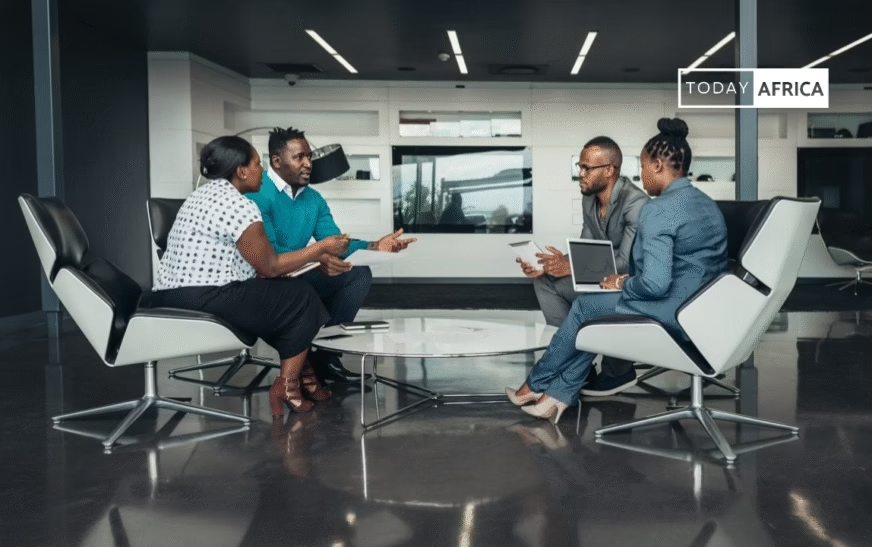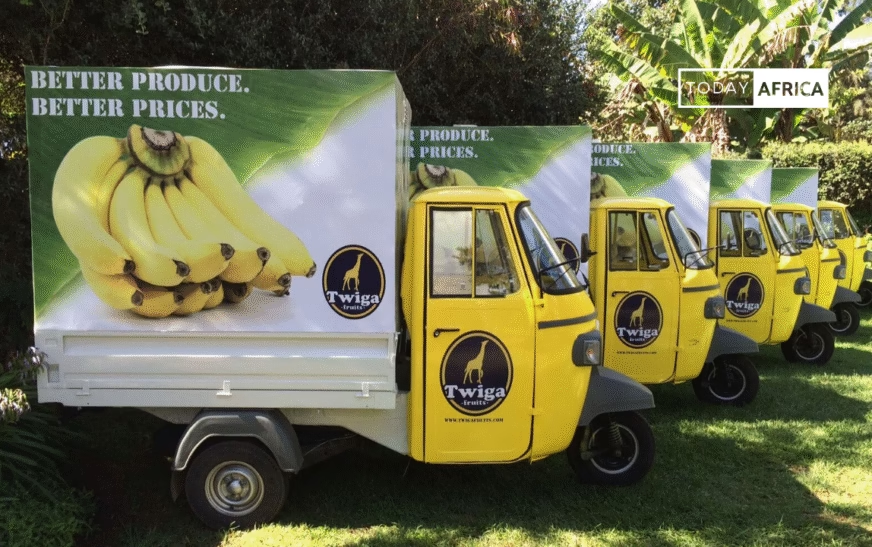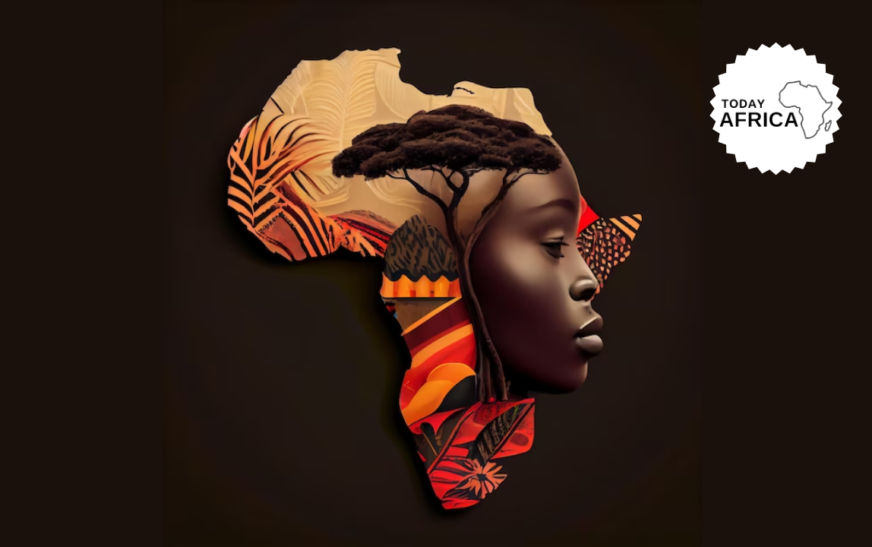It is early morning in Lagos.
Twenty-somethings in hoodies sip coffee at a small coworking space, checking dashboards and Slack messages. They’re trying to raise money, scale something, build something with real impact.
But the world they’d expected, in which global venture capital flows into Africa like fresh rain, isn’t showing up this season.
Instead, they are adjusting. Hustling. Learning to build on less. Trying new paths.
That is the story of many African founders today. Startup funding in Africa isn’t the way it used to be.
The global investment climate has grown cautious, with rising interest rates, shifting risk appetites and, closer to home, currency swings, regulatory uncertainty, and infrastructure constraints.
For Africa’s tech and startup ecosystem, this means fewer mega-rounds, tougher valuations, and plenty of founders asking: how do I adapt?
In this article, I look at the data, the shifting strategies, and the founders doing things differently. I travel through Lagos, Nairobi, Dakar, Cairo, not literally, but through stories, and ask what adaptation looks like when the funding taps aren’t as full.
A funding contraction: the numbers that set the scene
Let’s begin with fact: funding for African tech startups has fallen.
In 2024, private funding across African startups hit about $2.2 billion, down roughly 25% from the $2.9 billion in 2023.
In the first quarter of 2025, funding tracked by Africa: The Big Deal stood at $460 million, just a little under Q1 2024’s $486 million, but that figure conceals broader weakness.
March 2025 was particularly grim: just $50 million of funding was announced, one of the lowest monthly totals since the late-2020 pandemic slump.
Even when April rebounded to $343 million, the message was clear: deal size is shrinking, and mega-rounds are rarer.
Regional patterns reinforce the caution.
The so-called “Big Four” hubs – Nigeria, Kenya, South Africa, and Egypt – still attract the lion’s share of deals, but even they are not immune to the chill.
Beyond numbers there are stories of shutdowns and curtailed ambitions. Some African startups built in boom times are now struggling to raise follow-on funds or survive with limited burn.
So yes, the funding slowdown matters. It forces African founders to change tactics. The question is: how?
Why the slowdown?
It’s tempting to say: “Oh, it’s just because global investors are pulling back.” And in part that is true.
Capital flowing into emerging markets risk is more constrained; Western central banks are jacking up interest rates; global macro risk is higher, and Africa is seen as more risky than ever.
For example, while one dataset puts 2024’s African startup funding drop at 7% (via Partech), others report steeper declines when megadeals are omitted.
But there are more localized dynamics too.
Consider Nigeria: Nigeria saw one of the steepest downturns among peer countries.
A 2024 report found that Nigeria attracted just $410 million in funding, well down on its prior leadership position, and cited currency volatility, policy uncertainty, and macroeconomic instability as culprits.
Founders and investors frequently mention other pressures: impossible burn-rates, high customer-acquisition costs, infrastructure gaps, regulatory burdens and the simple fact that many African startups had been built for growth at all costs rather than profitability or resilience.
So when you combine the global slowdown + local fragilities, you get residual effects: less investor patience, fewer large rounds, more caution.
Thus founders are adapting. Not just complaining.
How African founders are adapting to the startup funding slowdown
1. Tighter corporate discipline: burn, runway, operations
In past years, many African founders were encouraged to “go fast, scale quickly, grab market share” and burn cash hope-to-escape-later.
That model worked when capital was abundant.
Now? Not so much. You hear more talk of unit economics, of longer runway, of sustainable growth rather than hyper-scale.
In Lagos, one fintech startup I spoke with said: “We built for 2025 in 2022, but today we’re planning for 2026 with half the budget.”
It mirrors anecdotal reports across hubs. Founders are trimming headcount, reducing office space costs, focusing on revenue streams, and delaying hiring.
There are more founders choosing debt or alternative financing (less dilution) rather than pure equity rounds. For example, in one dataset for 2025 Africa, debt financing surpassed $1 billion for the first time, signalling a shift.
It’s not glamorous. But adaptation requires realism.
2. Pivoting business models and zones of opportunity
With less venture capital bandwidth for risk, African founders are shifting focus. Some notable trends:
- From superficial consumer-tech growth plays towards models that generate revenue earlier and have clearer path to profitability. Investors are asking: can you survive with less funding?
- Alternative financing instruments: securitised bonds, revenue-based financing, hybrid equity-debt rounds. For example, in August 2025, Egypt’s consumer-finance platform valU raised via securitised bond issuance.
- More attention to sectors outside just fintech (though fintech remains dominant). For example, cleantech, greentech are gaining investor interest in 2025.
- Expansion beyond home market: African founders increasingly see regional expansion not as nice-to-have but necessary. One case: Nigeria’s fintech unicorn candidate Moniepoint (which raised $110 million) said expansion across Africa is a core part of its strategy.

3. Local capital and partnerships becoming more important
Another adaptation: recognising that global VC may be slower, but local capital and partnerships still matter, and sometimes are more reliable.
Some founders are forging partnerships with corporates, with governments, with pan-African funds that are less driven by mania and more by infrastructure.
In Kenya, for example, some agritech founders talk about local offtaker agreements, presales, contract-backed models rather than purely risk equity. In South Africa, energy-tech entrepreneurs are combining grants, debt, and equity, and leaning on institutional capital.
So adaptation means diversifying the funding base.
Not just “raise VC round” but “what hybrid financing can we access?” “Which corporate partner can help us?” “What government scheme supports us?” It shifts mindset.
4. Focus on product-market fit, retention, & cash generation
In a slower funding world, product-market fit matters more than hype.
Investors are asking: is this business real? Can it generate cash? Can you live another two years without raising?
In Kenya, a founder told me: “Our raise didn’t come through in time, so we turned all attention to EBITDA rather than growth. We renegotiated contracts, increased retention, cut churn.”
This, arguably, is a healthier discipline.
That shift is modest but important. The adaptation is psychological as much as strategic.
Founders are being forced to reckon with sustainability.
A look into Nigeria, Kenya, and Egypt
Nigeria
Nigeria once dominated African tech-startup funding. In 2021 and 2022, Nigeria’s startups raised $1.7 billion and $1.2 billion, respectively.
But by 2023, the story changed: Nigerian startups raised just under $800 million; in 2024, it fell to around $410 million.
Why? Currency risk (the naira dropped), policy changes, inflation, macro-instability.
Nigerian founders I interviewed say investors question whether local traction can scale regionally, whether exit potential is realistic given regulations, and whether the macro environment will hold.
So what are Nigerian founders doing differently? Some are:
- Crossing borders earlier: for example, opening Kenyan or Ghanaian offices to hedge risk.
- Engaging domestic institutional capital (pension funds, local corporations) rather than entirely relying on foreign VC.
- Extending runway: many are cutting burn, narrowing focus, enabling revenue-first models.
But challenges remain. Many say that the era of large Series B or C deals with U.S. or European VCs backing them is harder. The adaptation is still ongoing.
Kenya
Kenya presents a slightly different picture. While funding fell there too (Eastern Africa’s total declined 18% in 2024).
Kenya boasts a relatively more stable currency (shilling) and a supportive ecosystem (Nairobi as a hub). Data show Kenya raised about $638 million in 2024, 29% of Africa’s total.
Kenyan founders tell me: “We knew there was head-wind, so we focused on narrowing and dominating one market rather than splitting across many.”
There is also rising acceptance of revenue-based models and more modest financing.
In the agritech and climate-tech fields Kenya is seen as reasonably mature: mobile money is accepted, off-grid solutions have traction, donors & impact finance still active.
That cushion allows Kenyan founders to adapt in ways that complete boom-cycle founders elsewhere may not.
Egypt
Egypt often flies under the radar when people talk about “Africa’s startup boom”.
But in 2025, it made some noise: in the first five months of the year, African startups raised $1.055 billion, of which Egypt grabbed 31% ($330 million) according to Africa: The Big Deal.
Why Egypt? Relatively larger domestic market, regulatory reforms, an increasingly active venture scene, Middle-East investor interest.
Founders there are adapting by focusing not only on the Egyptian market but regional Arabic-language markets, often structuring deals with a mix of local/regional capital and global VC.
Real-world adjustments: founders who adapted
Consider the case of a Kenyan recommerce startup that emerged after the failure of a previous venture.
According to a profile of one serial founder, his earlier startup failed due to low funding and poor timing, but the new startup secured $6 million to expand across Africa, with a more disciplined structure and clearer business fundamentals.
Then there are cautionary cases: e-commerce or logistics startups that raised large sums in boom times, but when funding dried up, they couldn’t pivot in time or control burn, leading to shutdowns.
For example, the Kenyan logistics startup Sendy eventually ran out of funds after failing to close the target round.
These contrasting stories show adaptation matters. It is not enough to have a good idea or raise a seed round. Founders must build resilience.
In Nigeria, the fintech unicorn candidate Moniepoint is an interesting study: even in a climate of slowdown, it raised a large round ($110 million) and declared expansion across Africa..
What’s notable is that the founders emphasise profitability, scalability and regional expansion, rather than burning for growth only.

What this means for investors, founders and the ecosystem
When I talk to investors working in Africa, I hear themes like: “we’re still backing Africa, but we are more selective”.
One said, “We used to fear missing the next WhatsApp/Kenya-variant. Now we are asking: can the team survive with half as much money? Can they prove unit economics?”
For founders, this means: expectations need realigning.
The era of raising a big cheque based on potential only is fading. Being able to show early revenues, retention, solid metrics, local traction, and real management experience counts. Also, having a diversified funding strategy (equity, debt, grants, corporate partnerships) is no longer a nice-to-have; it’s necessary.
For the ecosystem more broadly, the slowdown is perhaps an opportunity for maturation.
There may be fewer flashy rounds, but the environment might begin to favour companies built for sustainability. The challenge: will this lead to fewer startups (bad) or stronger startups (good)? That remains to be seen.
One risk: the gender funding gap remains acute. In Q1 2025, female‐led startups accounted for only about 2% of total funding in Africa.
This suggests that during a slowdown, vulnerability rises for underrepresented founders. The adaptation story must include equity and inclusion.
Looking ahead: momentum in turbulence
Yes, the funding climate is tougher. But adaptation is underway.
Founders in Africa are increasingly focused on runway, sustainability, new financing instruments, cross-border expansion and operational discipline.
That doesn’t mean everything is fine; there are still big challenges: macro risk, regulatory unpredictability, infrastructure gaps, and talent shortages. But the framing shifts from “raise at all costs” to “build to last”.
There are signs that investor interest isn’t gone, it’s just more cautious, more differentiated.
Early‐stage deals still happen (for example, African startups raised $93 million in August 2025 across 33 deals). And sectors like cleantech, sustainable infrastructure, and fintech continue to draw attention. The adaptation is partly about timing.
For founders, the message is: adapt. Build your business assuming the next round may be delayed or smaller. Focus on cash generation, find alternative revenue paths, partner with local players, maybe pivot or reposition if needed—but with discipline.
For the ecosystem: this might be the moment for consolidation, for stronger governance, for closer attention to fundamentals. That could be a healthy signal.
Conclusion
When I think about this moment in African startup history, I picture two parallel tracks.
On one track, you have the founders who will win anyway: who accept the slower pace, build lean, focus on value, stick to fundamentals.
On the other track are those who still expect the boom-era curve, who assume capital will flow regardless of runway, product or market risk. The gap between those tracks may widen.
Adaptation, in this context, isn’t just survival; it’s strategic evolution.
African founders are learning new rhythms: slower growth, smarter capital, more local partnerships, disciplined execution. When the next wave of funding comes (and it will), those who have adapted may be better positioned.
So, as a founder, ask yourself:
- What’s my five-year plan if I raise half the money I hoped for?
- What’s my model if I cannot rely on a mega-round?
- What partnerships, what local capital, what revenue streams am I building now?
Because foreign investors haven’t stopped backing Africa, they just changed the terms. And those who adapt may find that the slowdown was not a margin call but a moment of transition.
Leave a comment and follow us on social media for more tips:
- Facebook: Today Africa
- Instagram: Today Africa
- Twitter: Today Africa
- LinkedIn: Today Africa
- YouTube: Today Africa Studio

















2 Comments
Great article! I really appreciate the way you explained everything so clearly.
Thank you for finding value in the article.
Comments are closed.